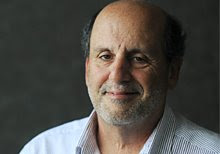How many paychecks can your bank statement afford to miss?
Two surveys this past week showed half of Americans are unprepared should their rainy day arrive.
In a monthly Discover U.S. Spending Survey, more than 43 percent said they can only last a month or less maintaining their current lifestyle if they suddenly lost their income. Only 21 percent said they had enough reserves to last six months or more.
A MetLife study showed a similar state of unreadiness - 50% of Americans with only a one-month money cushion, or less, if they were to lose their job. About 28% said they couldn't last more than two weeks.
Those with stout paychecks aren't immune. Of respondents making more than $100,000, 29 percent say they'd be unable to pay the bills after more than a month of unemployment.
Financial planners have recommended keeping three to six months' expenses set aside - three months if you have a two-income family and six if only one income. But with the job market so weak right now, five to eight months is better.
There's a good news/bad news byproduct here: Americans who still have jobs have been spooked by the recession into saving more. While only 30% say they're cutting back on non-essentials such as dining out and vacations, 56% said they are doing so to prepare themselves should bad job news arrive.
How many paychecks could you miss? Tell us if you're less ready - or more - than you were a year ago.
-
President Obama is optimistic on the economy. The GOP - not so much, reports the New York Times.
What do the corporate giants really think of your opinion? The Washington Post explores.





5 comments:
Living above your means is the American way!
My husband and I have nearly 4 months of expenses saved. Given that in the last 2 years we've experienced two layoffs, two pay cuts and a new baby, I think we are doing pretty good. We are in our early 30s and we're shocked at the number of our friends who think we're "lucky" to have these savings. As if a money fairy graced us with cash. Nevermind that we consistently live within our means, and sacrifice and save as needed.
This is one of the few positives of our current economic crisis. Americans have finally woken up to the realities of over-consumerism and keeping up with the joneses. I personally have always saved for a rainy day and lived a modest lifestyle even when both my husband and I were working and making a combined income of over $200k a year! (while our friends leased BMWs, bought bigger houses, etc).
We have 1 year of living expenses in various money market accounts. We have no debt except for a mortgage and are working to quickly pay that off. We have not used credit since 2003 and became debt free in 2006.
Anyone who finds themselves with less than 6 months of living expenses in a rainy day fund needs to seek out the book The Total Money Makeover by Dave Ramsey.
to be fair, not everyone is living above their means and that's why they don't have a big savings. there are a lot of people, myself included, who simply don't make enough to have 6 months worth of expenses saved. people who are living paycheck to paycheck for just their everyday bills. how long do you think it would take a young person making 30,000 (after taxes 23,000) a year to save 7,000? If i didn't have student loans i could be saving $500 a month. but since i had to go to school to get a job that only gets me paycheck to paycheck, if i lose it i would run out of money after a month. it's not because im living beyond my means. and if anyone says that going to college was a step beyond my means - i say that we have even bigger problems than we thought.
Post a Comment